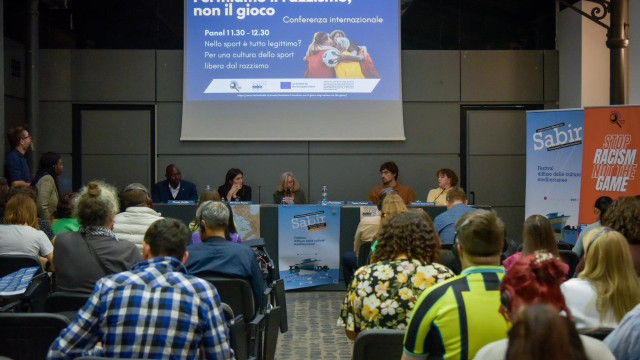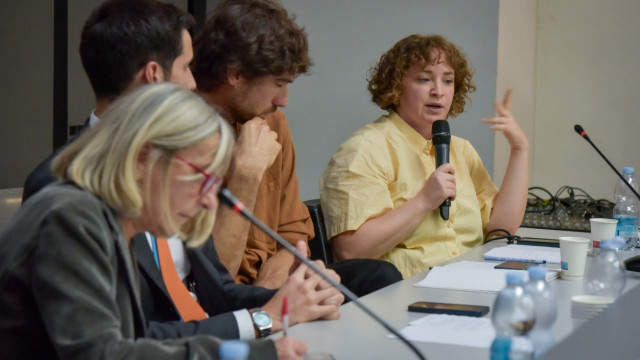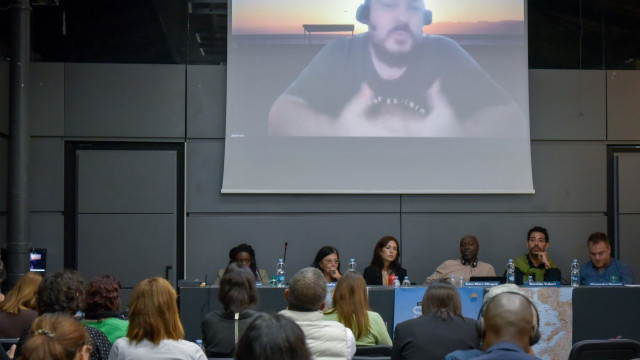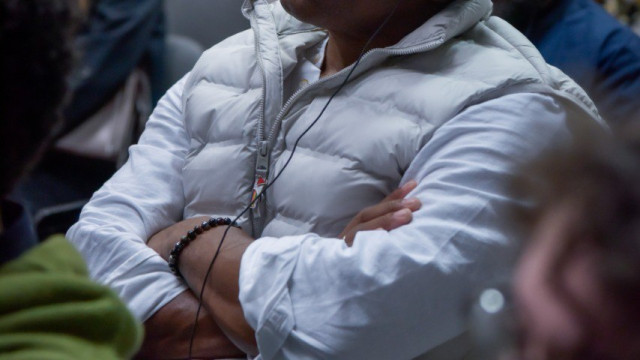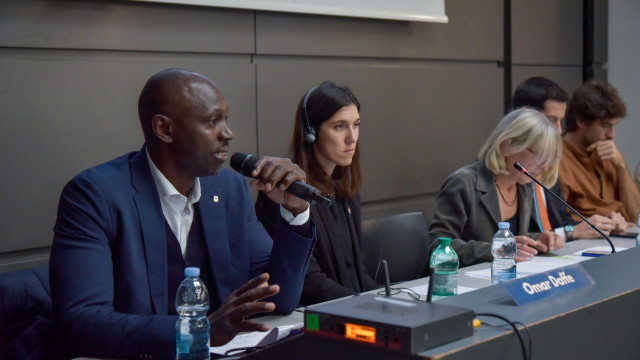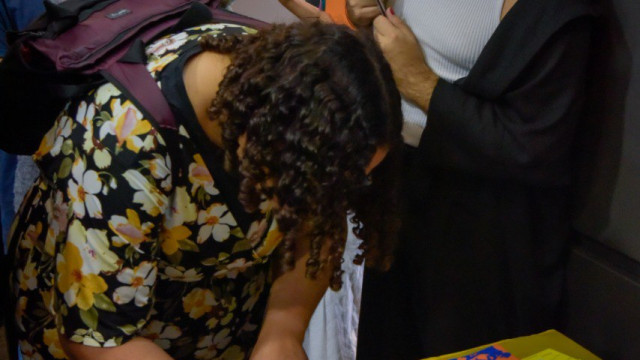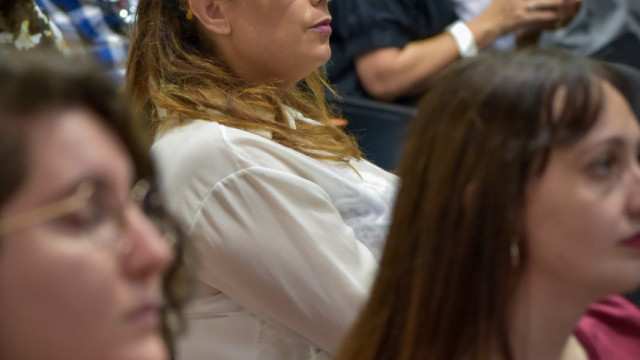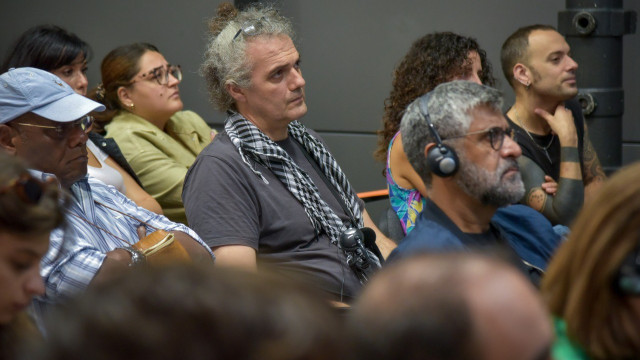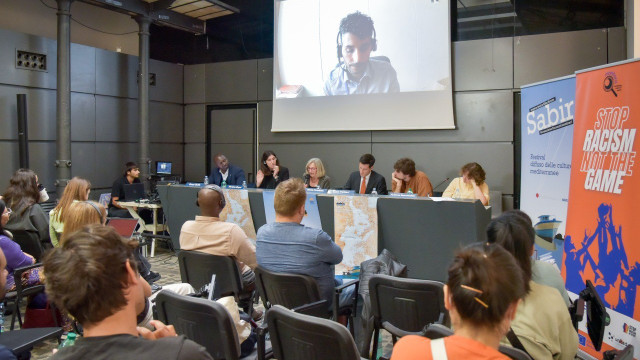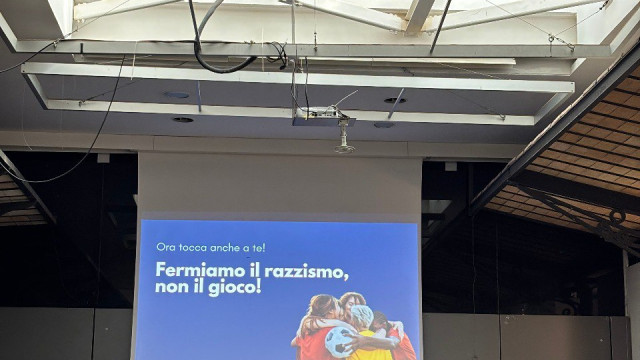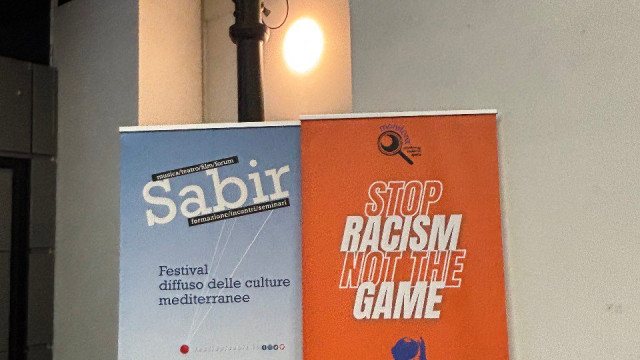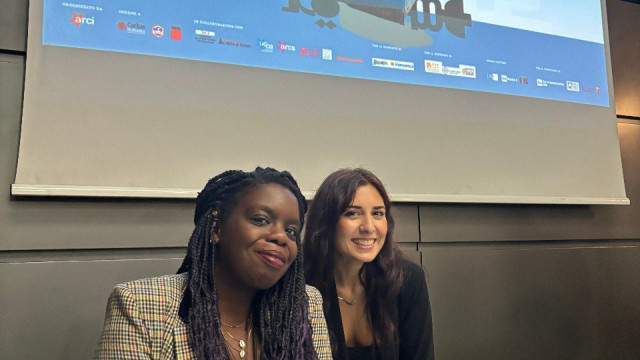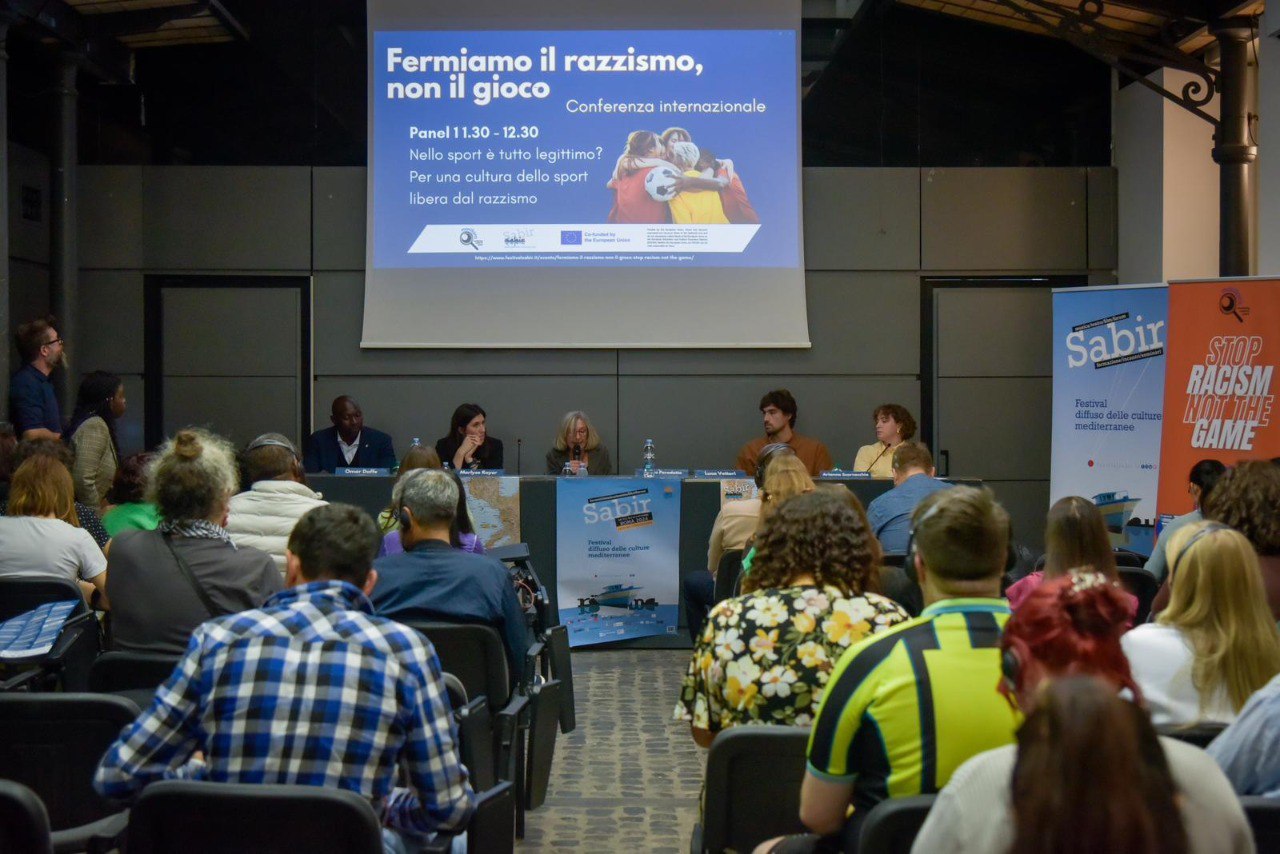
Sport cannot be considered an island separate from the social context. This was the premise from which all the speakers started during the conference “Stop Racism, Not the Game,” held last Friday, Oct. 11, as part of the Sabir Festival.
Numerous voices were heard during the two panels: not only representatives of the associations involved in the Monitora project, but also personalities such as Omar Daffe of Lega Serie A, Matteo Tracchi of ECRI, Mattia Peradotto director of UNAR, volleyball player Luca Vettori and Altreconomia journalist Arianna Scarnecchia, authors of the podcast “Fuori dai giochi-Gli spazi preclusi dello sport” (“Out of the Games-The Foreclosed Spaces of Sports.”)
The variety of perspectives enriched a debate that, for some time now, has been developing both within the sports world and in anti-racist activism. Questions that recurred and returned several times during the two-hour discussion included “How can we change the culture of sports so that it is free of racism?” and “Are sanctions really an effective tool?”
Change the sports culture
The first panel focused precisely on the sports culture and what has been done so far to counter racism in this area. Many of the speakers pointed out that the sanctioning approach, while having immediate utility, is not sufficient. In this context, monitoring proved to be a key tool, both in documenting the phenomenon historically and in highlighting good practices in responding to racism. Prominent among these is the act of leaving the field by players who are victims of discrimination, a practice also found in the monitoring conducted by ECRI between 2019 and 2024.
Fundamental, then, is training, using every possible method, including nonformal education, aimed at the entire sports ecosystem. This not only makes it possible to implement monitoring activities, but above all aims to prevent incidents of discrimination within the sports world.
However, when talking about cultural change in the world of sports, it is necessary to go beyond what happens on the playing field. The narrative offered by the media, traditional and otherwise, also has a significant impact. Not infrequently, in fact, journalism conveys stereotypical and discriminatory representations of athletes. In Italy, for example, it often happens that athletes of foreign origin are treated with skepticism regarding their “Italian-ness,” questioning their legitimacy to compete at the national or international level.
Monitor, prevent, act
The analysis of the role of the media highlights a crucial concept, which ties the first panel to the second and brings us back to the premise of the conference itself: sport is a mirror of society, not a world apart. Confirming this is the work done by the partners of the Monitora project, who in the second panel illustrated how sports, despite being part of many people’s daily lives, is often represented only through the perspective of the elite. At the same time, it is necessary to acknowledge the presence of racism in the sports context.
The results of the project, illustrated through national and European reports, local events, workshops, campaigns and the launch of an online training platform, highlight the need for increased awareness and training. In fact, issues related to racism are often addressed with time-limited campaigns that fail to produce concrete changes in people’s lives.
Monitoring actions, carried out by a network involving sports associations, federations, institutions, families and third sector organizations, are essential to prevent racism in sports. For this very reason, the Monitora project has developed the online training “Monitoring racism in grassroots sports” accessible free of charge and at any time, as well as a proposal for an editable protocol that can be adapted to the needs of each context.
The game is not over
As we come to the end of these two years of the project, it is important to remember that every action taken has a specific goal: to make sports a safe space for more and more people. When we say “Stop racism, not the game,” we are not just referring to the now increasingly common practice of leaving the field in response to racist incidents. It means, rather, creating an environment in which no one is forced to interrupt their sports journey as a result of racist discrimination.
To achieve this, it is essential to provide adequate training, create a support network that ensures people’s safety and facilitates the reporting of incidents of racism, and promote monitoring and prevention.
There is still much to be done, and Monitora represents only one stage in a journey toward equality and equal opportunity in sports that is difficult and fraught with obstacles, but feasible.
Download these documents:


